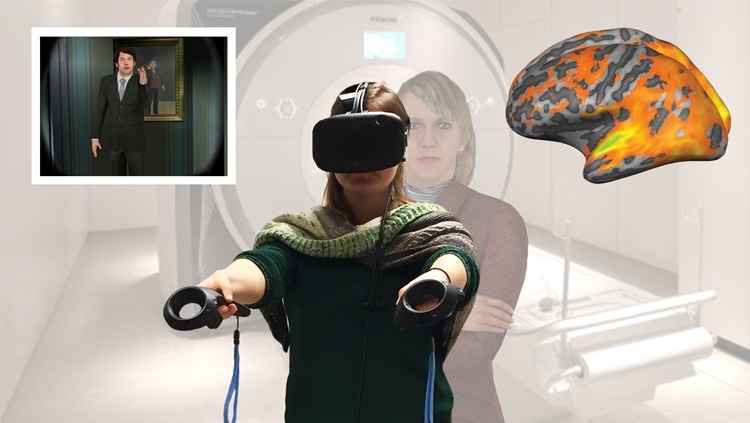Virtual reality activates brain networks that increase your ability to identify with other people, according to new research published in eNeuro. The technology could become a tool in the treatment of violent offenders to empathize more with others.
 First person embodiment virtual reality training activates brain networks to help you identify more with others. Image Credit: de Borst et al., eNeuro 2020
First person embodiment virtual reality training activates brain networks to help you identify more with others. Image Credit: de Borst et al., eNeuro 2020
Understanding someone's point of view is crucial for successful relationships. When this doesn't come naturally, virtual reality technology may be able to help the process. A first-person perspective virtual reality experience providing multi-sensory feedback can coax the brain into thinking a virtual body is its own body. This causes the brain to react to virtual events as if they are happening in the real world.
de Borst et al. used functional magnetic resonance imaging to monitor the brain activity of participants while they experienced a virtual reality animation of a man verbally abusing a woman, from the perspective of the woman. Before watching the scene, the participants went through virtual reality training embodied as the woman or as a bystander watching the woman.
People experiencing the first-person embodiment identified the woman's body as their own and demonstrated synchronized brain activity in the personal space and body ownership networks. They also showed strong synchronized activity in parts of the brain processing threat perception when the man got close.